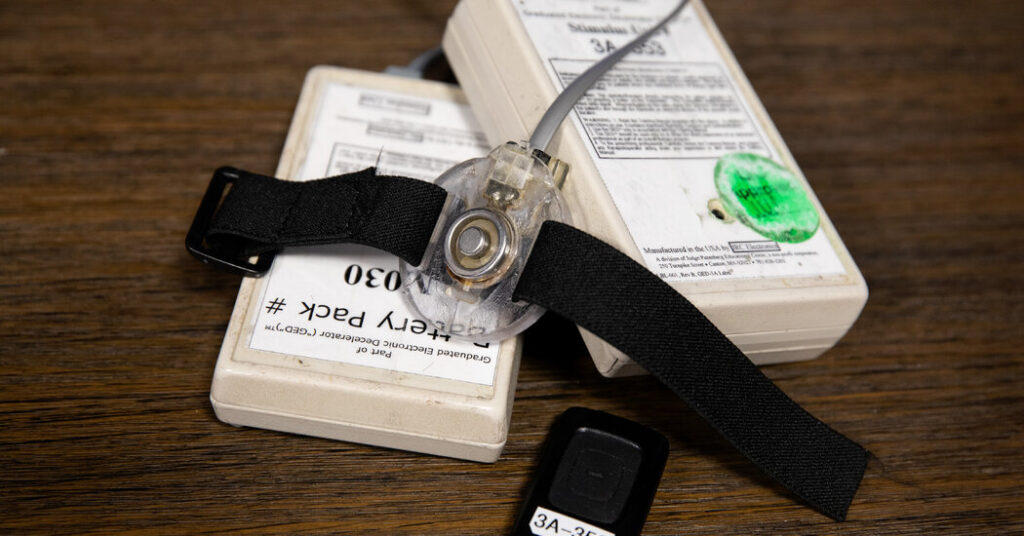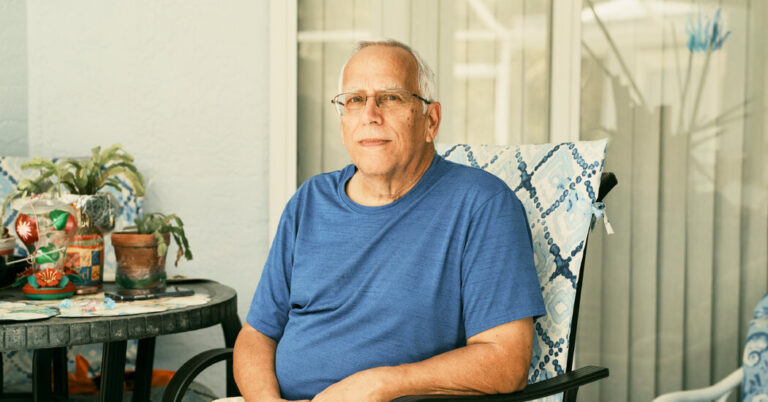
It’s unclear what most residents wearing the devices think of the treatment. Many, including Mr. Green and Mr. Hinton, do not speak, or they communicate using only single words and short phrases. The center would not permit The Times to interview anyone wearing the shock devices during a visit late last year.
In 2022, however, investigators from the Association for Behavior Analysis International talked to four patients receiving shocks. Three said they didn’t want it, one of whom begged to be taken away, according to their report. Even though one patient wanted the treatment, the organization disavowed it, making the group one of the last of its kind to do so.
The outcry has come alongside a larger shift in society’s understanding of neurodevelopmental disabilities. There has been a growing awareness that efforts to “correct” behavior considered undesirable may traumatize people. A movement led by autistic adults and clinicians argues instead for a greater understanding from society and more support for speech therapy and other treatments.
Ms. Msumba, the former Rotenberg Center resident who wore the device, calls herself proof that alternatives can work. Her new treatment facility, she told lawmakers in 2023, has given her the time to understand and cope with her disorders, and has prescribed medications that had been denied to her at Rotenberg.
As a result, she said, “I have a real life now.”
Glenda Crookes, the Rotenberg Center’s chief executive, said that many things changed after Dr. Israel left in 2011 as part of a deal with state officials investigating an incident when the devices were misapplied.
Changes have included an expansion of other forms of treatment, Ms. Crookes said. But the facility remains committed to Dr. Israel’s values, she added, including the shock devices. “Our priority was, and always has been, to make sure that the treatment continues.”




